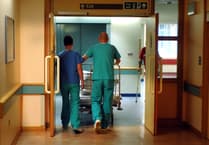YOUTH workers helped young people in Tavistock get through the worst effects of the Covid-19 pandemic thanks to extra funding, councillors have been told.
Tavistock Youth Café used the cash from West Devon Borough Council during the summer to combat anti-social behaviour in the town’s popular park the Meadows and give young people a safe place to meet.
The cafe were awarded the money from the council-backed Community Safety Partnership and a report to the authority’s overview and scrutiny committee said in response to anti-social behaviour in the Meadows, youth workers held weekly sessions in the park where they offered snacks, games and a place for young people to gather.
The report said: ‘We also continued our one to one mentoring work for young people experiencing mental health issues, and thanks to financial support we were able to pay for our youth work team to work extra hours delivering trips and activities.’
It said: ‘Some of these young people come from difficult family circumstances and are unable to afford holidays or expensive entry fees into attractions.
‘The weekly sessions in the park gave us the chance to talk to young people who we’d lost contact with during the pandemic, some of which are now back at the youth café and engaging with youth workers.’
The report said positive outcomes included relief from boredom, which could lead to anti-social behaviour, socializing, keeping vulnerable young people on site and offering a safe space for some who feel intimidated by others.
It adds: ‘We have asked young people what they want and have been told that the skate park (in the Meadows) is not an inviting place for most to hang out.
‘We are aware that some young people cause issues for others, and we can’t solve this problem overnight.’
Tavistock Youth Cafe said they would continue to pursue a better skatepark which is designed to be more inclusive for families and had opened discussions with Tavistock Town Council.
Meanwhile, councillors were told by a similar group, Room 13 in Okehampton, that they had kept in touch with young people through the lockdowns brought on by the pandemic through a mixture of streetwork, one to one targeted work and online sessions.
Their report to the committee said: ‘For the most part young people respected the lockdowns and the impact of the pandemic at a significant time in young people’s lives when they would normally be socialising and enjoying their free time.
‘As we started to emerge from the lockdowns the opportunity to get out and enjoy the summer was more valuable to young people than normal.
‘We selected largely outdoor activities, not only because they seemed safer under the circumstances but because we felt young people might be keen to get outdoors more or maybe need to be encouraged to get back out again.’
Activities included a three-day residential aimed at some young people who may have experienced ‘significant’ issues due to lockdowns, such as isolation, mental health issues or the need to care for siblings and family members.



